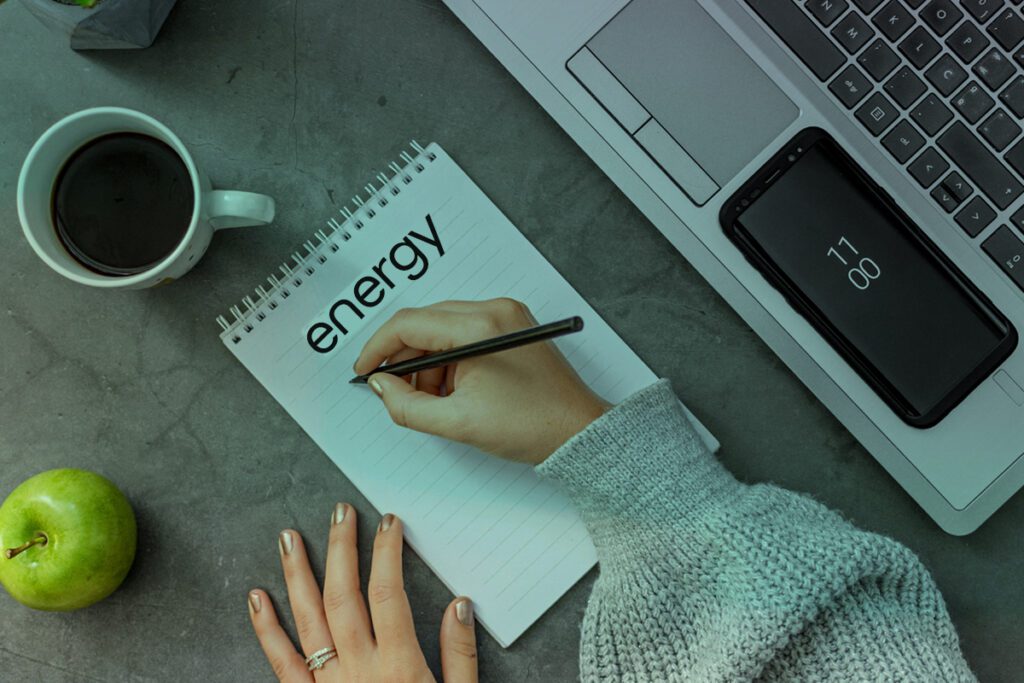Our business energy experts have created this small business energy checklist to help you manage your business’ costs.
You should run through these four checks on an annual basis and record figures that can be checked again the following year to measure your progress.
Conduct a small business energy audit
Ideally, a professional energy manager should do this to get the maximum benefit, but you can still conduct a cost management-focused version yourself.
If your business has multiple meters, check which results in the most consumption and try to diagnose why that might be. What equipment does the meter feed and what is its condition?
If you only have one meter, consider what equipment is using electricity and try to tie it back to consumption showing on your bills. One method to do this is to look at what hours you consume energy and what hours those things are in use. For example, a small shop or retail unit using fridges will need them running 24 hours a day, whereas strip lighting will only be used during certain hours.
If your meter is half hourly, you can request your half hourly data from your supplier or District Network Operator (DNO) and assess when your usage is heaviest.
For businesses who want a more forensic examination or need extra insight into their usage, we recommend using a qualified energy assessor to conduct an audit.
Or, you can access monitoring and targeting software for relatively low cost. Many Third Party Intermediaries (TPIs) can recommend the most suitable software for your needs.
Re-think your energy consumption practices and engage your people
From shift patterns to movement detectors, timers and automation controls; what can you control which impacts energy consumption?
Changing shift patterns sounds like a huge upheaval, however it can reap significant rewards when it comes to energy efficiency. For example, two-rate energy contracts will reward businesses for consuming power outside of peak times with split day and night rates.
Bringing colleagues and employees on a cost saving journey can prove difficult as they strive for the most convenient ways to do their jobs. Consider a communications plan which will engage them on the journey to improve energy efficiency across the business. Utilise competition, incentives and strong leadership to enthuse your people towards a consumption reduction goal.
Evaluate your small business energy contracts
The best way to lower costs is to use less. However, there is always a baseline of consumption that is essential for a small business to be able to operate.
The 2021 gas price crisis changed delivery prices for good. Suppliers now build extra risk into their deals, despite the wholesale market recovering to somewhere near its early 2021 levels. UK prices are propped up by ongoing infrastructure challenges, geopolitical instability and conflicts affecting supply chains.
Within this context, you should evaluate what price you’re likely to be able to obtain for your next contract and whether now is the best time to act. Advanced procurement of energy contracts is often very beneficial, rather than waiting until the last moment when you will have to take whatever prices are available at the time.
Perhaps unsurprisingly, we would recommend working with a market expert to evaluate your strategy in this area and compare market prices for you. Switching companies who engage with the market daily can provide valuable advice for small businesses who simply don’t have time to do the same.
Cost certainty also holds value in an unstable marketplace. This means you should carefully consider the term you wish to lock in the price for. Every business has different circumstances, but planning costs for long term is always beneficial if prices are agreeable, especially in the current economy. Discussing the pros and cons of contract terms is another benefit of working with a business energy expert.
Consider renewable technologies
Return on investment (ROI) of renewable installations has never been achieved faster. They can now be accessed for no up-front investment via Power Purchase Agreements (PPAs) and have drastically improved in output over the last 10 years. Average ROI terms have reduced to under five years.
With net zero obligations ramping up across industries and more stringent climate-related legislation likely to come into force over coming years, businesses should absolutely be assessing the impacts renewables could have on their costs and carbon footprint.
Small businesses in shared premises or small units should be asking their landlords whether they are considering renewables as this can dramatically improve energy costs for their tenants and improve the value of their buildings.
Again, some expert knowledge is likely to be needed. Simply reaching out for a desktop study or a quote does not take much time and experts like Procure Smart can provide detailed system designs, feasibility studies and project plans very quickly.
Conclusion
We have self-promoted slightly more than we usually would in this blog. That’s because Procure Smart has been created around the needs we know our customers have; and our value proposition is closely aligned to the processes businesses should be following to manage their energy strategies effectively.
If you would like help with your small business’ energy strategy, Procure Smart offers free, no-obligation cost comparisons and advice.
For more cost saving and switching content across energy, water, waste, telecoms, card payments and more, check out our Smart Hub.

